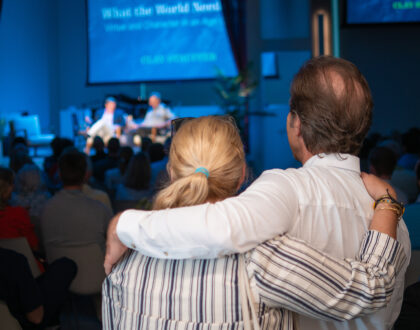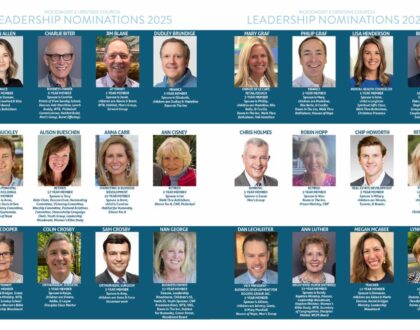Why Churches Must Bounce Back

I want to thank everybody who has made a commitment to support Woodmont’s ministries for another year. So far we have received 350 commitments totaling $2,707,169. We are still hoping for additional participation in our “Rising Strong Together” campaign.
The pandemic has created significant challenges for churches and faith communities. Clergy and faith leaders have a multitude of questions as we emerge from this unprecedented time, not to mention severe fatigue and exhaustion.
Will the church return to where it was pre-pandemic? Are people still afraid of Covid or simply out of the rhythm of coming to worship? What role will technology (livestreaming, Zoom) play moving forward? Has the pandemic moved this country further down the road of secularization?
Back in March, Gallup came out with a poll that was shocking and disappointing to many. In America, membership in American houses of worship (churches, synagogues, mosques) dropped to 47% percent, the first time it has ever dipped below the 50% mark. When Gallup first started measuring data in 1937, the membership figure was 73% and it basically remained there for roughly six decades. The twenty-first century has ushered in sharp levels of decline. What happened? What has changed?
Canadian philosopher Charles Taylor addresses the question in his book A Secular Age: “The change I want to define and trace is one which takes us from a society in which it was virtually impossible not to believe in God, to one in which faith, even for the staunchest believer, is one human possibility among others.” He says, “Belief in God is no longer axiomatic. There are alternatives. And this will also likely mean that at least in certain milieux, it may be hard to sustain one’s faith.”
These trends that Gallup has been reporting were already underway, and along comes the Coronavirus in 2020. Many are wondering if Covid has skewed the data. We can hope, and time will tell. But here are some basic reasons why American culture and communities need healthy congregations that are thriving, missional, and well supported:
• The words and teachings of Christ are live-giving, timeless, challenging, and need to be shared with every generation.
• Faith communities offer peace and stability in the midst of chaos and turmoil.
• Selfishness and self-centeredness remain a genuine struggle for every human being.
• Our culture still faces an epidemic of loneliness and despair, including depression, that has only been exacerbated by the pandemic, social distancing, fear, and limits placed on gatherings.
• Faith communities provide a place for authentic relationships to be formed and sustained while exploring the deeper meaning of life.
• Addiction is surging and many churches house life-saving groups like AA, Al-Anon, and other twelve-step programs that are lifelines to so many.
• Churches should serve as agents of healing, hope, and spiritual renewal in a world where many feel beat down and exhausted.
• Most lasting philanthropic endeavors originate and are sustained by faith traditions.
• During the pandemic, politics has replaced religion for many, which is unhealthy.
• All human beings are wired to worship something; if we don’t worship God, we will quickly find the idol of our choosing.
I can’t imagine Nashville without its many thriving faith communities. I believe it is imperative that we rise strong after this past year. When people drift away and lose spiritual focus, it becomes clear that something very important is missing in life. Many Christians have been feeling this way. Now is the time to return and recommit.
Recommended Posts

Healing, Growth, & Renewal Over Time
May 30, 2025

Values for Our Graduates
May 20, 2025

Leading in the Church
May 16, 2025

